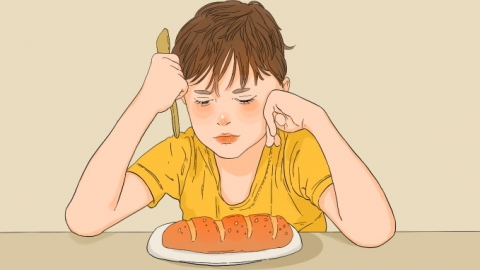Why does cortisol deficiency lead to decreased appetite?
Generally, cortisol insufficiency leads to decreased appetite, mainly related to reasons such as slowed gastrointestinal motility, reduced sensitivity of taste and smell, metabolic imbalance, abnormal emotional status, and disrupted perception of energy requirements. The detailed analysis is as follows:
1. Slowed Gastrointestinal Motility
Cortisol regulates the contraction of gastrointestinal smooth muscles. When cortisol function is reduced, insufficient hormone secretion causes slowed gastrointestinal motility. Delayed gastrointestinal movement prolongs the retention time of food in the digestive tract, slows down digestion, delays gastric emptying, and consequently causes discomfort such as bloating and prolonged satiety, reducing the patient's desire to eat and leading to decreased appetite.

2. Reduced Sensitivity of Taste and Smell
Reduced cortisol function affects the sensitivity of nerves related to taste and smell, decreasing the patient's ability to perceive the flavor and odor of food. As food no longer provides normal taste and olfactory experiences, its appeal diminishes, weakening the patient's willingness to eat voluntarily, manifesting as reduced appetite.
3. Metabolic Imbalance
Reduced cortisol function disrupts metabolic balance, causing unstable blood glucose levels and frequent episodes of hypoglycemia. Although hypoglycemia can trigger hunger, long-term metabolic disturbances affect the body's normal perception of energy needs. Meanwhile, a slowed metabolism reduces the body's consumption, indirectly suppressing appetite, ultimately leading to decreased appetite.
4. Abnormal Emotional State
Cortisol plays an important role in emotional regulation, helping maintain emotional stability. When cortisol function is reduced, hormone deficiency affects the balance of neurotransmitters related to emotions in the brain, making patients prone to negative emotions such as low mood, anxiety, and depression. Negative emotions directly impact the appetite center, suppressing the desire to eat, making it difficult for patients to develop an interest in eating even when presented with foods they usually enjoy, causing reduced appetite.
5. Disrupted Perception of Energy Requirements
Cortisol helps the body sense and adapt to fluctuations in energy demands caused by external environmental changes. Cortisol insufficiency leads to disordered perception mechanisms of energy needs, preventing the body from properly determining when energy should be replenished through food intake.
In addition, cortisol deficiency may also be accompanied by gastrointestinal discomforts such as nausea and vomiting, further worsening the loss of appetite. Therefore, when related symptoms appear, timely medical consultation is necessary to identify the cause and initiate targeted treatment. Under a doctor's guidance, adjustments to the dietary structure can also be made to help improve appetite.










